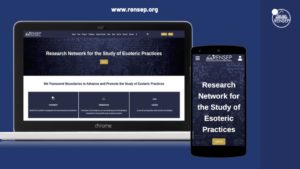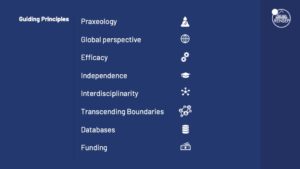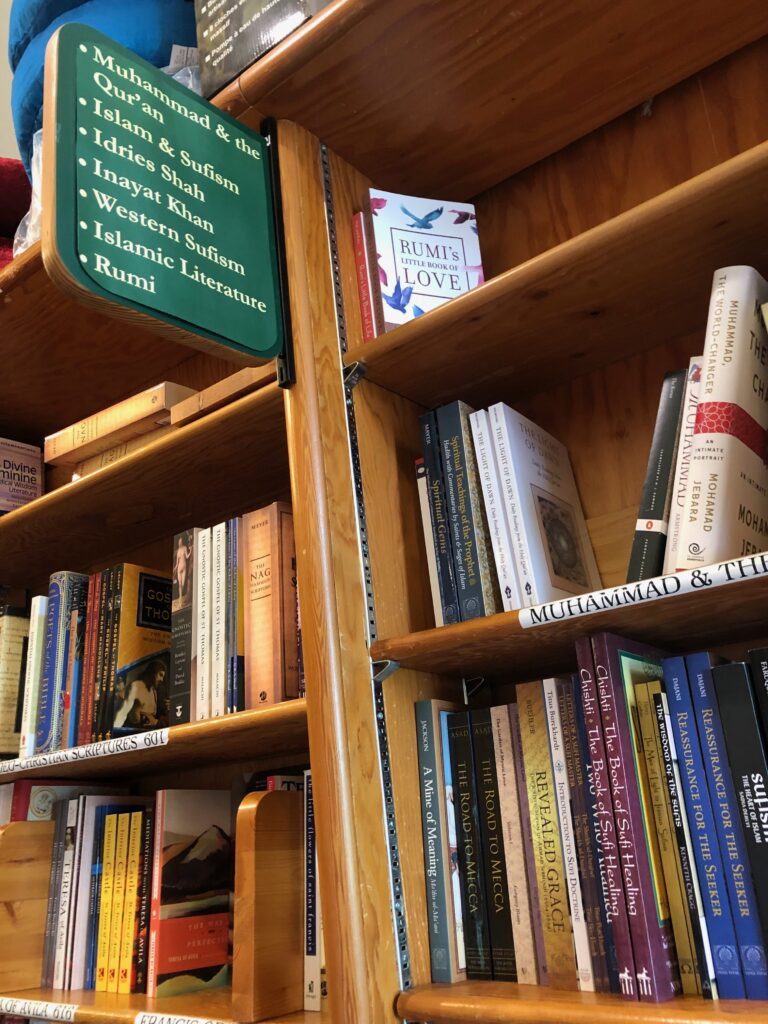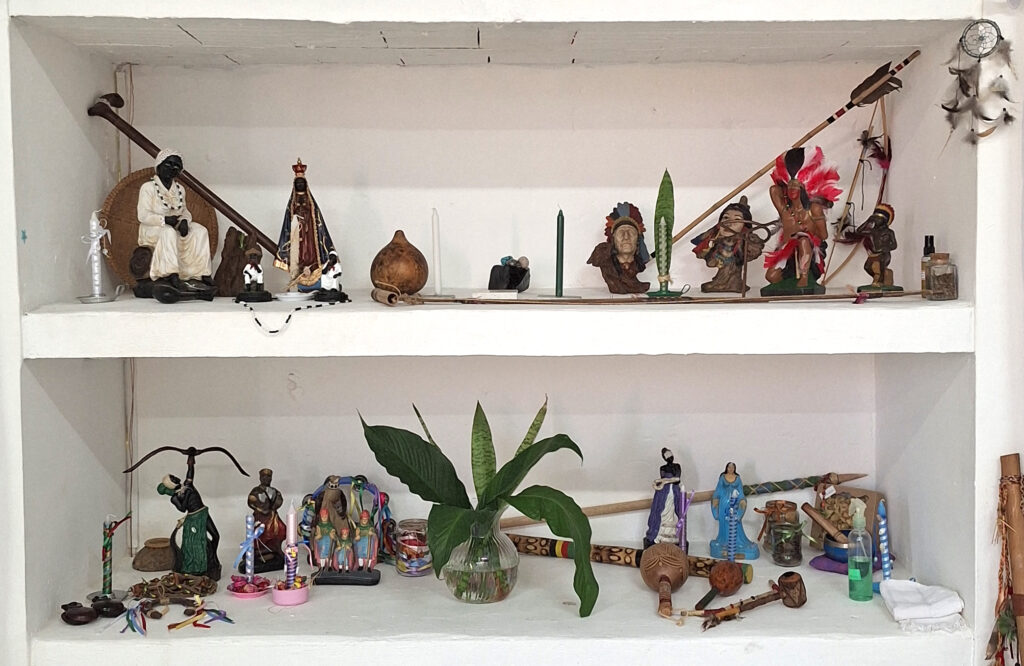I recently had the pleasure of giving a guest talk entitled “The Research Network for the Study of Esoteric Practices (RENSEP),” at the newly founded Center for Advanced Studies ‘Alternative Rationalities and Esoteric Practices’ at Friedrich-Alexander Universität Erlangen-Nürnberg. I had visited Erlangen on the days before for a working meeting with Bernd-Christian Otto and Mariano Errichiello, who are both (like me) founding members of RENSEP and also members of CAS-E. A brief disclaimer is necessary at this point: both Otto and Errichiello have reviewed and contributed to this blog entry in their function as trustees of RENSEP, but not as members of the CAS-E center. Nevertheless, I remain exclusively responsible for the content.
In my talk, I gave a brief description of RENSEP, a London-based non-profit foundation the focus of which is to advance and promote the interdisciplinary and comparative study of esoteric practices from a global perspective. I presented RENSEP’s goal of creating a global research network that strategically destabilises established boundaries by exploring the points of friction as well as overlaps between academic disciplines dedicated to the study of esoteric practices (e.g., history, anthropology, sociology, cognitive study of religion, philology, area studies, neuroscience), between scholars and practitioners of esoteric practices, and, finally, between esoteric practitioners that belong to different traditions.
RENSEP’s approach is built around three main elements: 1) a complex subject of study—esoteric practices from a global perspective, 2) a stimulating collaborative environment that challenges disciplinary boundaries—the research network, and 3) a shared cognitive and interactional space—the RENSEP online platform. The term “esoteric practices” is used by RENSEP as a second order category that potentially covers a large variety of practices. RENSEP considers esoteric practices to be part and parcel of the history of religion at large. However, four characteristics have been identified to demarcate esoteric practices from other forms of religious behaviour: controllability (of spiritual matters), individualisation (of spiritual development), self-empowerment (ascription of power to individual practitioners), and experience (the importance of personal experiences). It is worth noting that the concept of secrecy, which has long characterised scholarly definitions of esoteric practices, is not a demarcating characteristic in RENSEP’s multifactorial definition. This choice parallels RENSEP’s praxeological approach, which puts the focus on praxis-knowledge and practical experiences instead of theories and worldviews. Furthermore, RENSEP’s global perspective acknowledges the existence of cultures in which esoteric practices are integrated into the dominant discourses of society, as a consequence of which the notion of secrecy becomes relational, that is culture- and context-bound.
Thus conceived, the meta-category of “esoteric practices” permits the study of practices from multiple cultural and religious backgrounds, allowing them to be compared with respect to common principles that may inform their (real or perceived) efficacy.
The RENSEP team believes that the most effective way to study esoteric practices is to create a stimulating interdisciplinary environment in which experts from different disciplines and backgrounds can collaborate and share their interpretations, methods, and perspectives. This environment is monitored by RENSEP’s Scientific Committee, which is composed of scholars from a range of disciplines—such as history, anthropology, psychology, the neurosciences, philology, and arts—whose expertise covers various cultural and religious environments. What is more, RENSEP aims to expand a global network in which the participation of both scholars and esoteric practitioners is encouraged and supported on the grounds that they are not sharply distinguished in type but rather sit at two different points on the same epistemic continuum, or research spectrum. We believe that both perspectives can offer interpretations of esoteric practices that can complement and enrich each other, thus allowing a more complete picture to emerge. Naturally, this approach comes with many challenges. For instance, access to academic literature among esoteric practitioners needs to be addressed to avoid misunderstandings concerning what exactly scholarly research is about. With this goal in mind, RENSEP intends to facilitate interactions between scholars and esoteric practitioners by regularly creating educational content for RENSEP members to ensure that the network’s activities are supported by a shared intellectual framework.

The RENSEP online platform (online from April 2023 onwards) is the shared cognitive and interactional space that underlies RENSEP’s research initiatives. On the one hand, it allows network members to engage with each other by building personal relationships, exchanging expertise, defining practices to study, and establishing epistemic collaborations. This is made possible by the web platform’s inbuilt social networking features, such as forums, research and discussion groups, messaging functions, and member profile pages, and is further supported by effective community management that ensures regular routines and activities to instigate interaction among the membership. On the other hand, the RENSEP web-platform allows for the collection of data that may facilitate the study of esoteric practices by both scholars and esoteric practitioners. Members can upload experience reports, ritual scripts, excerpts of magical diaries, answers to surveys, visual media, research material (such as footage from fieldwork), or any other material relevant to the study of esoteric practices. Data can be uploaded anonymously and made available to all network members in the private area of the online platform, protected by rigorous GDPR policies and procedures. Contributors can choose to retain the copyright of the data they submit.
In addition to the social networking functionalities and the database, the online platform contains educational material, publications, and a learning space for members. The platform is conceptualized as a hub for the study of esoteric practices and the co-production of knowledge.

RENSEP’s approach highlights the overlaps that exist between academic disciplines, between disciplines and esoteric practitioners, and between esoteric practitioners from different cultures and backgrounds. Exploring and exploiting the frictions and asymmetries between these different epistemic registers in a systematic way is a pioneering initiative. In this regard, RENSEP can also be viewed as a practice-based research project on methodology related to the study of esoteric practices, grounded in a participatory exercise. RENSEP draws attention to the unpredictable ways in which scholarly and esoteric practitioner knowledge, on the one hand, and collaborative research practices, on the other, can inform each other. As a result, the research environment stimulates the creation of new relations and offers new possibilities for the study of esoteric practices.
My talk in Erlangen was followed by a stimulating question and answer session. Audience members were particularly interested in the multifactorial heuristic definition of esoteric practices proposed by RENSEP. Questions were asked about the concepts of controllability and individualisation. The former was challenged on the grounds that, according to the questioner, it is loaded with positivist biases, and the latter for standing in contrast to the relational nature of practices dealing with entities and spirit possession, such as in Indonesian shamanism or among Nigerian healers. In my answer, I highlighted that RENSEP’s working definition is polythetic inasmuch as not all four of these elements must apply to a given case or practice for RENSEP to consider it esoteric. I also conceded that this matrix will need to be fine-tuned through application to concrete cases and that this is a shared endeavour that must be taken on by all RENSEP members. The audience asked about scholar-practitioners, and whether it would be appropriate to distinguish such a category alongside those of “scholar” and “esoteric practitioner.” I answered that RENSEP acknowledges scholar-practitioners as potential collaborative partners in that they embody the co-existence of both epistemic registers. As such, they can certainly play an important role in the research network. However, I also clarified that RENSEP’s approach is to treat the research spectrum as a unified whole, valuing all its different gradations. In fact, regarding the research network, the terms “scholar” and “esoteric practitioner” are conceived by RENSEP as positions within a polar spectrum rather than as absolute categories. Questions were also asked about the protection of the identity of network members in countries where esoteric practitioners are persecuted. I answered that RENSEP takes this issue very seriously and strives to find solutions that will allow the participation of members from different socio-cultural and political contexts, for instance by allowing individuals to anonymise their personal information on the online platform. The questions I received were helpful in highlighting aspects of RENSEP that require further debate and fine-tuning. In particular, they led me to reflect upon one of RENSEP’s guiding principles—the global perspective—and to contemplate more effective ways of dealing with it. This could be done by, for instance, adopting a decentralised approach to the management of the research network, encouraging and supporting local initiatives that take account of socio-cultural specificities, or consistently seeking the advice of non-Western scholars to challenge RENSEP’s approach.
#
Andrea Centore is co-founder and managing director of the Research Network for the Study of Esoteric Practices. He received his training in translation studies (Russian, French, English) at the University of Mons-Hainaut (Belgium). He has long engaged with texts belonging to various esoteric traditions, including Islamicate occultism, ancient Jewish mysticism, and strands of Western esotericism. He is currently an entrepreneur in the professional services industry and one of his personal objectives is to bring the academic world into dialogue with esoteric practitioners in a more systematic way.
__
CAS-E blogs may be reprinted with the following acknowledgement: “This article was published by CAS-E on February 3, 2023.”
The views and opinions expressed in blog posts and comments made in response to the blog posts are those of the author(s) and do not necessarily reflect the views and opinions of CAS-E, its founders, its staff, or any agent or institution affiliated with it, nor those of the institution(s) with which the author is affiliated.
__
Image credits: © Research Network for the Study of Esoteric Practices, 2022.








